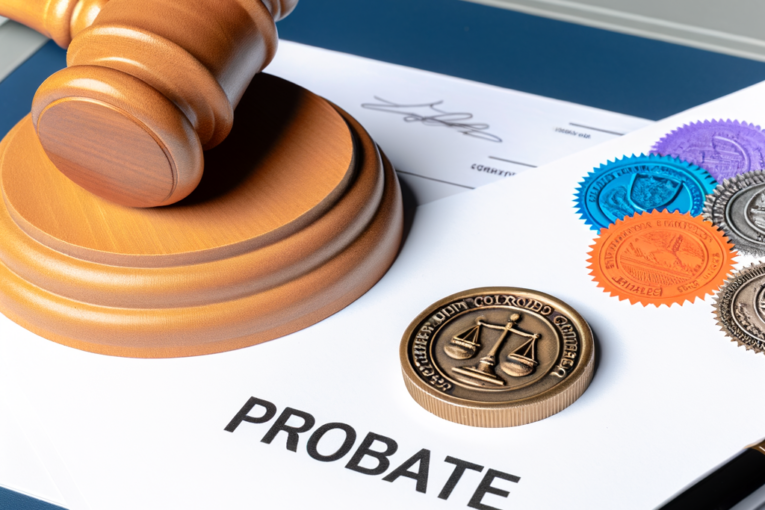In today’s digital age, our online presences and virtual identities often outlive us. With more aspects of our lives stored online, from photos and messages to financial records and creative works, it’s important to consider what will happen to our digital legacies after we pass away. Proper digital estate planning ensures your wishes are carried out and your loved ones have access to your accounts.
This guide looks at the main guidelines for digital legacy management that the biggest social media and tech platforms offer:
Facebook and Instagram
Facebook allows you to assign a legacy contact to manage your account if you pass away. They can:
- Post on your timeline.
- Respond to new friend requests.
- Update your profile picture and cover photo.
Your account can also be memorialized, which adds the word “remembering” before your name. Only confirmed friends can see your memorialized profile or locate it in search results.
Instagram only offers memorialization. Your account will remain visible to confirmed followers, but your username will have “Remembering” added, and no one can log into your account.
For Gmail and other Google services, utilize their Inactive Account Manager. This allows you to:
- Choose up to 10 trusted contacts.
- Set a waiting period of inactivity before your account is shared.
- Grant full or limited access to certain services, like Drive or Photos.
- Share data before auto-deletion
YouTube accounts can also use the Inactive Account Manager.
LinkedIn allows account closure after the user’s death. The account will be permanently deleted, along with all connections and recommendations.
Before closure, you can export your connections to notify your network.
Apple
Apple does not have a specific digital legacy feature but will grant access to a deceased’s Apple ID with proper verification:
- Death certificate
- Proof that you are an immediate family member
- Additional legal documents, depending on assets
This allows the management of data and subscriptions, but not personal content.
Designating a Digital Executor
When planning your digital estate, carefully choose an executor to manage your accounts and assets after you pass away. Consider:
- Technical expertise: they should be comfortable with digital asset management.
- Trustworthiness: give them full access, so ensure they are reliable.
- Ability to carry out your wishes—will they follow your instructions?
A digital executor should be able to smoothly access your accounts, manage or distribute your digital assets according to your preferences, and close accounts you don’t want maintained. Proper planning avoids complications for loved ones and respects your privacy wishes.
Organizing Your Digital Assets
You can take these steps now to organize your digital estate:
- Make a comprehensive list of your online accounts and digital assets.
- Designate digital executors and heirs for specific assets.
- Share important account information, like passwords and security questions, securely.
- Give clear instructions for how you want each account handled after your death.
- Make copies of key documents like wills, contracts, and financial information to store securely.
Be sure to regularly update this information as you acquire new digital assets over time. Keeping an organized, current record will allow your executors to smoothly enact your digital estate plan.
Data Inheritance Considerations
Digital assets that you may wish to pass on to your heirs include:
- Photos and videos documenting special memories
- Email and social media messages capture conversations with loved ones.
- Social media posts showing your life and interests
- Financial records like bank statements and tax documents
- Creative works like writing, art, or music
Be aware of limitations in accessing or modifying certain data after your death; some platforms, like Facebook, do not allow alteration or deletion of the deceased user’s original shared posts.
Secure Storage
Take steps to protect your data by:
- Enabling privacy settings and encryption on accounts and devices
- Using a password manager to securely store login information
- Understanding each platform’s specific legacy access features
- Researching account security protocols like two-factor authentication
You should also be judicious in granting account access; executors need enough access to do their job, but you should not compromise sensitive information or your privacy.
Privacy and security risks
Carefully consider potential privacy risks when granting others access to your accounts after you pass away.
- Facebook’s Legacy Contacts gain the ability to post as if they are you, so choose someone trustworthy.
- Google’s Inactive Account Manager allows up to 10 people to access accounts after inactivity is triggered.
- Apple only grants access after extensive identity verification and legal paperwork.
- LinkedIn will permanently delete accounts, removing all connections.
Finding the right balance between providing proper account access to executors while maintaining security and protecting your privacy is key to digital estate planning.
Conclusion
With proper digital estate planning, you can ensure your online legacy is handled in a way that protects your privacy and respects your wishes after you pass on. Take time now to organize your digital assets, choose trusted executors, understand platform policies around account management, and make your preferences clear. Thoughtful preparation today will help preserve your digital legacy for generations to come.





